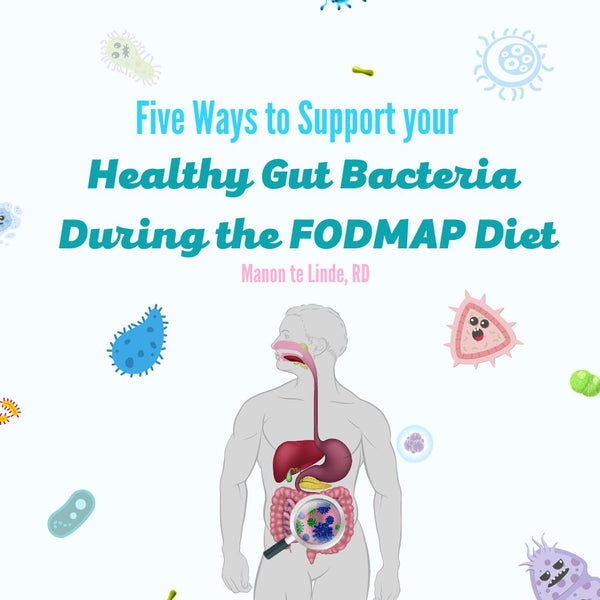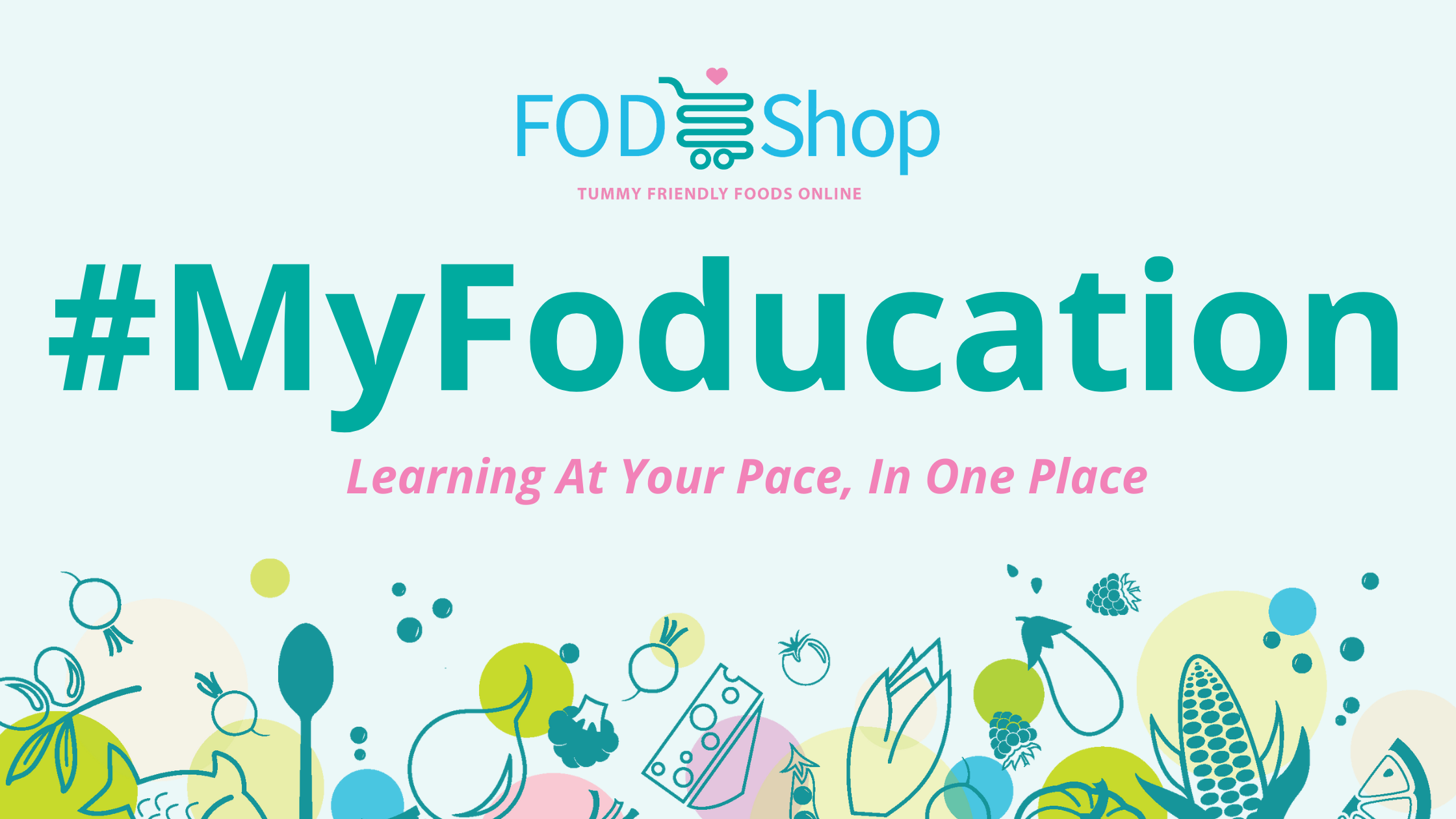- Ph: +61 435 003 412
- operations@fodshopper.com.au
"Organic Orange" has been added to your cart. View cart
"Organic Orange" has been added to your cart. View cart

Your gut bacteria play an important role in the health of your gut and immune system. Many people with Irritable Bowel Syndrome (IBS) already seem to have a slightly different gut microbiome than people who do not have IBS. But did you know the FODMAP diet can also have a (negative) effect on your gut?
The FODMAP diet is an elimination diet that shows promising results in the treatment of IBS. About 75% of the people with IBS experience relief, when they follow the diet. As a result, many people are trying it out, to see if they can feel better too! This is generally a good idea, as long as you do it right (and preferably with a specialized dietitian. Click here to find a dietitian near you!
During the FODMAP diet, you will eliminate high amounts of FODMAPs. FODMAPs are fermentable carbohydrates and fibers and these types of fiber in particular are a major nutrition source for your healthy gut bacteria. By eliminating these fibers, you will also make the life of your healthy bacteria a lot harder. This leads to a decrease in the amount of healthy bacteria, because they will be starving.
In the short term, this is not too big of a problem. If you follow the FODMAP diet like it’s supposed to (4-6 weeks of elimination and then the reintroduction), your healthy bacteria will generally survive, or at least not diminish too much. But studies have shown that longer periods on the FODMAP diet, do cause a significant decrease in the healthy bacteria (source: https://www.ncbi.nlm.nih.gov/pmc/articles/PMC6835969/) . And that is exactly what we want to prevent!
How to keep your gut bacteria healthy on the FODMAP diet?
To support your healthy gut bacteria when you’re on the FODMAP diet, you can do a lot of things. Today I’d like to discuss 5 points with you that you can start doing today, to keep your gut healthy!
Don’t cut things out completely.
Many foods have portion sizes that are safe and that are high FODMAP. Look through your Monash University FODMAP app and see which foods you may be able to add. The general rule I tell my clients is: try to add it if you can at least eat half a portion of a product. Don’t avoid a product just because you can eat very little of it, a small portion will still add diversity to your diet!
Try to add nuts and seeds to your diet.
Nuts and seeds are a great way to add fiber and energy to your FODMAP diet. Not all nuts are suitable for the low FODMAP diet, but many nuts do have a low FODMAP portion size! The same is true for seeds. Sprinkle them over salads or your meal to add some extra fiber.
Spread your meals over the day.
In order to avoid FODMAP stacking, you shouldn’t combine more than 2 products that contain the same FODMAP in one meal. But you can use low amounts of the same FODMAP multiple times in a day if you spread it throughout the day! Try to keep at least 3-4 hours between meals that contain a small amount of the same FODMAP and you should be good.
Aim for enough fruits and vegetables in your day.
This can be a little bit difficult, since a lot of fruits and veg are limited by FODMAPs. But I’d really advise you to use at least 200 grams of fruit and 250 grams of vegetables every day. Especially if you spread them throughout the day, this should be easier to achieve.
Don’t just choose gluten-free products.
Although many gluten-free products will be suitable for the low FODMAP diet, they are generally not the greatest choice for your gut health. Many gluten-free products are based on potato starch or rice and these don’t contain a lot of fiber for our gut microbes. Try to look for whole grain and low FODMAP alternatives like sourdough bread, buckwheat, oats, teff, brown rice or quinoa. Your gut will thank you!
Manon te Linde is a gut health dietitian from the Netherlands. She has been dealing with her own IBS since her teenage years and has specialized in the holistic approach of Irritable Bowel Syndrome. She created her blog Positive Gut and the IBS-CARE group program to aim for a world where people can poop without problems.
Find her blog posts at www.positivegut.com
Dietitians , FODMAP , FODMAP diet , FODMAP dietitian , FODMAP expert , FODMAP food list , FODMAP foods , FODMAP Friendly , FODMAP Friendly Foods , FODMAP Learning , fodmap mexican , FODMAP Recipes , FODMAP Stacking , Fructose friendly , Gut Bugs , gut health , High fibre , IBS , IBS diet , IBS friendly recipes , Low FODMAP , Low FODMAP bolognese , low FODMAP cannelloni , low FODMAP diet , low FODMAP food list , Low FODMAP Foods , Low FODMAP learning , low FODMAP middle eastern , low fodmap middle eastern food , Low FODMAP Recipes , Microbiome , No garlic , No onion , no onion no garlic , Prebiotics , Regular Girl , Regular Girl Australia , Sunfiber , Sunfiber Australia , taco tuesday , Taiyo Sunfiber , Tomorrow's Nutrition

Leave a reply